Indigestion (also called dyspepsia) is troublesome pain in the upper abdomen that has been present for at least one month. It is a set of symptoms occurring during or after eating a meal. These include feeling fullness or discomfort in the epigastrium and a burning sensation in the upper abdomen.
We can distinguish two different types of indigestion. Those are:
The syndrome of indigestion symptoms most often accompanies other diseases of the digestive system![]() , such as:
, such as:
Digestive disorders are common and can affect anyone, regardless of age or gender.

Many factors can cause indigestion![]() . The most common are dietary errors. The method of preparing meals and the choice of ingredients are decisive. A diet containing significant amounts of fat, fried meals, hard-to-digest and bloating foods, low in fiber, and at the same time very plentiful are the most common causes of indigestion
. The most common are dietary errors. The method of preparing meals and the choice of ingredients are decisive. A diet containing significant amounts of fat, fried meals, hard-to-digest and bloating foods, low in fiber, and at the same time very plentiful are the most common causes of indigestion![]() .
.
Symptoms intensify after large meals, for which the body is not prepared daily. The factors triggering the ailments are the fat mentioned above and many simple sugars.
Apart from diet, lifestyle is of great importance. Lack of time to rest, eating in a hurry, which causes swallowing air, and low physical activity intensify the symptoms and make it difficult to digest food properly.
An important factor leading to dyspepsia is stress (in psychogenic indigestion![]() ). Another cause of indigestion may be factors related to abnormalities of the digestive system, both functional and anatomical. Digestive system diseases that most often cause symptoms of indigestion include inflammation of the gastric mucosa, infection with the Helicobacter pylori bacterium, stomach and duodenal ulcers, and esophageal narrowing.
). Another cause of indigestion may be factors related to abnormalities of the digestive system, both functional and anatomical. Digestive system diseases that most often cause symptoms of indigestion include inflammation of the gastric mucosa, infection with the Helicobacter pylori bacterium, stomach and duodenal ulcers, and esophageal narrowing.
Symptoms of indigestion![]() include:
include:
In some people with dyspepsia, the symptoms depend on the type of meals eaten and the time consumed. As a rule, the symptoms only occur during the day and rarely disturb sleep at night. Bowel movements are usually standard.
Heartburn![]() is an esophagus symptom and is not typical of dyspepsia. It may indicate gastroesophageal reflux disease. However, it may coexist with symptoms of dyspepsia and does not exclude functional dyspepsia if it persists despite taking medications that inhibit hydrochloric acid secretion in appropriate doses.
is an esophagus symptom and is not typical of dyspepsia. It may indicate gastroesophageal reflux disease. However, it may coexist with symptoms of dyspepsia and does not exclude functional dyspepsia if it persists despite taking medications that inhibit hydrochloric acid secretion in appropriate doses.
Sometimes other upper gastrointestinal tract symptoms accompany indigestion. These include:
Abdominal pain can have many different causes. In dyspepsia, the pain may cause discomfort but is usually not severe.
These types of dyspepsia symptoms, if they persist for a long time, e.g., several days or weeks, should be alarming. Then, see a doctor for further diagnosis.
A correctly collected medical history is valuable in establishing the diagnosis of indigestion![]() . Thanks to a thorough and factual conversation between the doctor and the patient, it is possible to determine, for example, the impact of medications taken on the occurrence of disturbing symptoms of indigestion. Those questions may include:
. Thanks to a thorough and factual conversation between the doctor and the patient, it is possible to determine, for example, the impact of medications taken on the occurrence of disturbing symptoms of indigestion. Those questions may include:

However, in many cases, it is impossible to clearly distinguish whether dyspepsia has an organic or functional basis without a proper examination. For this purpose, the specialist may use upper gastrointestinal endoscopy![]() . It helps determine whether the cause of dyspeptic symptoms is a specific digestive system disease.
. It helps determine whether the cause of dyspeptic symptoms is a specific digestive system disease.
In the case of indigestion, the examination must be performed urgently if the symptoms appear for the first time or there are so-called alarm symptoms: weight loss (without intention to lose weight), abdominal pain at night, swallowing disorders, jaundice, gastrointestinal bleeding, anemia, or palpable lump in the upper abdomen. Abdominal ultrasound is also helpful.
Additionally, to diagnose functional dyspepsia, three conditions must be met: the symptoms persist for more than three months (and the onset occurred before six months), there is no diagnosed organic disease, the symptoms do not subside after defecation, and they do not cause a change in the bowel habits.
In some patients, the symptoms disappear after a few months or years – often regardless of whether they took any medications, so the treatment![]() may not be needed. For others, they last in varying degrees for many years. There are also people whose dyspeptic symptoms accompany them throughout their lives. It is very likely that functional dyspepsia does not shorten life and is not a precursor to any dangerous organic disease (e.g., stomach cancer or peptic ulcer). It impairs the quality of everyday functioning to some extent. Still, it should not affect life activity, e.g., it is not a basis for applying for sick leave or disability benefits.
may not be needed. For others, they last in varying degrees for many years. There are also people whose dyspeptic symptoms accompany them throughout their lives. It is very likely that functional dyspepsia does not shorten life and is not a precursor to any dangerous organic disease (e.g., stomach cancer or peptic ulcer). It impairs the quality of everyday functioning to some extent. Still, it should not affect life activity, e.g., it is not a basis for applying for sick leave or disability benefits.
In the case of treatment of organic dyspepsia![]() , the basis is the therapy of the underlying disease. If the cause of dyspeptic symptoms is chronic medications, discuss with your doctor if you can discontinue or replace them.
, the basis is the therapy of the underlying disease. If the cause of dyspeptic symptoms is chronic medications, discuss with your doctor if you can discontinue or replace them.
Treatment of functional dyspepsia![]() is much more difficult. There is a wide range of possibilities. The specialists recommend patients suffering from functional dyspepsia modify their lifestyle by stopping smoking and limiting the consumption of coffee, alcohol, strong tea, spicy spices, and fried foods.
is much more difficult. There is a wide range of possibilities. The specialists recommend patients suffering from functional dyspepsia modify their lifestyle by stopping smoking and limiting the consumption of coffee, alcohol, strong tea, spicy spices, and fried foods.
An indigestion diet is an essential element in reducing the occurrence of dyspeptic symptoms. It is better to eat slowly and more often but less abundantly.
Usually, if we have indigestion, the first thing we think about is medication![]() . Depending on the cause of your indigestion, your doctor may recommend over-the-counter or prescription medications. Medicines used for indigestion may include:
. Depending on the cause of your indigestion, your doctor may recommend over-the-counter or prescription medications. Medicines used for indigestion may include:
If we want to restore balance in the digestive tract quickly, we can use over-the-counter medications. They support digestion by inhibiting the secretion of hydrochloric acid or intensifying the secretion of bile. They usually contain, among others dehydrocholic and silymaric acids, aloe, black radish, or artichoke extract.
In addition to medicines, it is worth trying natural remedies for indigestion. Some of them are simple treatments that allow you to feel relief and eliminate annoying ailments quickly.
Warm compresses on the abdomen will be helpful temporarily as they will relax the smooth muscles and relieve the pain.
Regular physical activity is significant. It will improve your overall well-being, prevent constipation, and speed up the digestive system. After a meal, specialists advise moderate exercise as an excellent remedy for getting rid of stress and improving your overall well-being.
In the fight against indigestion, reflexology![]() may be helpful, i.e., pressing selected points on the body related to the digestive system.
may be helpful, i.e., pressing selected points on the body related to the digestive system.
To treat indigestion, quitting smoking is very important. That is because nicotine![]() impairs accurate digestion, disturbs the blood supply to the stomach, and disrupts the proper contractility of the stomach and esophagus and the functioning of the lower esophageal sphincter, which causes the regurgitation of food contents from the stomach into the esophagus, consequently, heartburn.
impairs accurate digestion, disturbs the blood supply to the stomach, and disrupts the proper contractility of the stomach and esophagus and the functioning of the lower esophageal sphincter, which causes the regurgitation of food contents from the stomach into the esophagus, consequently, heartburn.
If medications and herbs do not help with indigestion, according to researchers, psychotherapy![]() may bring the expected results. This is because the condition can result from emotional stress, so seeking mental health care may help relieve abdominal pain. During psychotherapy, the specialist will help the patient find ways to cope with everyday stressors. If stress causes indigestion, it is worth trying meditation and other relaxation exercises.
may bring the expected results. This is because the condition can result from emotional stress, so seeking mental health care may help relieve abdominal pain. During psychotherapy, the specialist will help the patient find ways to cope with everyday stressors. If stress causes indigestion, it is worth trying meditation and other relaxation exercises.
Dyspepsia symptoms are closely related to the amount and composition of food consumed. A good home remedy for indigestion will be to replace three primary meals with several smaller, easily digestible ones. When you have a bloated stomach and stinging in the intestines, regular nutrition is very important. Avoid too long breaks between meals or conscious starvation in case of indigestion. Patients should also avoid overeating.
When dealing with dyspepsia, we must remember to eat our last meal about 2-3 hours before bedtime. A great solution to digestion problems will also be a conscious selection of the food's composition and its preparation method. Specialists recommend boiling, cooking in aluminum foil, or stewing instead of deep-frying. In addition, you must follow the basic principles of rational nutrition and enrich your diet with vegetables.

In the case of indigestion, the diet![]() requires the introduction of easily accessible ingredients into the menu that help reduce the risk of indigestion, such as parsley (improves digestion, reduces the tension of the intestinal walls, accelerates metabolism), ginger (increases the secretion of digestive juices and bile) and caraway (shows antispasmodic and carminative).
requires the introduction of easily accessible ingredients into the menu that help reduce the risk of indigestion, such as parsley (improves digestion, reduces the tension of the intestinal walls, accelerates metabolism), ginger (increases the secretion of digestive juices and bile) and caraway (shows antispasmodic and carminative).
When indigestion occurs after a meal, avoiding fatty foods and spicy spices is an effective way to deal with dyspepsia. In the indigestion diet, the specialists recommend limiting or eliminating highly processed foods containing large amounts of hardeners, preservatives, and fast food snacks from the daily menu.
To avoid a bloated stomach after a meal, remember to bite slowly and chew thoroughly to mix them with saliva, which initiates the complex digestion process. Eating in a hurry is an additional factor responsible for the occurrence of unpleasant, recurring symptoms of indigestion.
According to the principles of rational nutrition, the specialists recommend drinking at least 2 liters of clean, still water every day (preferably with low sodium content). It will adequately moisturize the cells and simultaneously accelerate filtering and removing toxins from the body. The specialists recommend drinking water in small portions after a meal rather than during it.
To eliminate indigestion, you should avoid carbonated drinks responsible for flatulence. The incidence of dyspepsia symptoms decreases as the amount of coffee and other caffeine-containing beverages is reduced. A better solution would be to drink herbs for indigestion.
An effective remedy in the fight against dyspeptic symptoms is widely available herbal teas for indigestion, especially those containing mint leaves or fennel (they increase secretion of gastric juice and bile and have a carminative effect) or chamomile basket (it has anti-inflammatory and antispasmodic properties).
An equally effective solution for the symptoms of indigestion will be supplements and indigestion drugs containing natural ingredients, such as buboes (strongly relaxes the smooth muscles in the intestinal wall and bile ducts) or alona, obtained from aloe vera (has a protective effect on the mucous membranes, improves intestinal function, rebuilds intestinal microflora).
A practical method will also be using herbal, natural tablets for indigestion containing artichoke herb extract, dill fruit extract, or turmeric extract. They are available at pharmacies without a prescription and eliminate the leading cause of indigestion, i.e., fats.
Remember that appropriate prevention is significant if you want to get rid of dyspepsia.
The diet for indigestion should be easily digestible. It is worth giving up frying food for baked or steamed meals. To avoid the feeling of overeating, the diet of a person with dyspepsia should include five smaller meals.
The way you eat is equally important. When eating food, avoid swallowing air. Food must be eaten unhurriedly and chewed thoroughly. You should also not overeat or eat at night. Eating your last meal at least 3 hours before bedtime is best. It is worth drinking a lot of water, but remember to take it in small sips.
Pay attention to what you eat. Products that may increase the risk of indigestion include:
In case of indigestion, steamed vegetables, lean meat and fish, groats, baked apples, bananas, rice gruel, and stale bread can be eaten.
Indigestion is a problem that can happen to anyone at one time or another. If you tend to suffer from this condition, you should first discontinue all products in your diet that may worsen stomach problems.
It is also essential to lead a calm, stress-free lifestyle. If, despite these changes, indigestion still interferes with your daily functioning, it is worth consulting a doctor.
Indigestion, although not the cause of the disease itself, can be one of the symptoms of more severe diseases. For this reason, it is worth discussing your problems with a doctor who will suggest appropriate diagnostics and further treatment.
Table of Contents
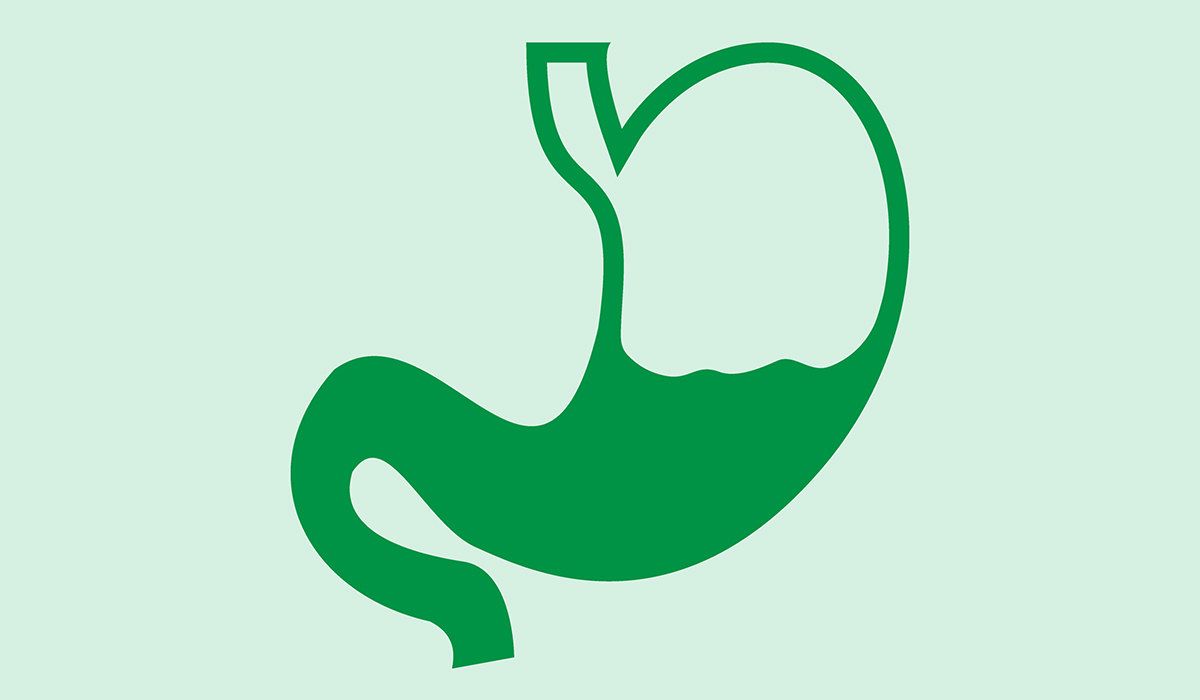
Gastroparesis is a disorder of the motility of the stomach. The disease causes many unpleasant symptoms. Find out how to… read more »
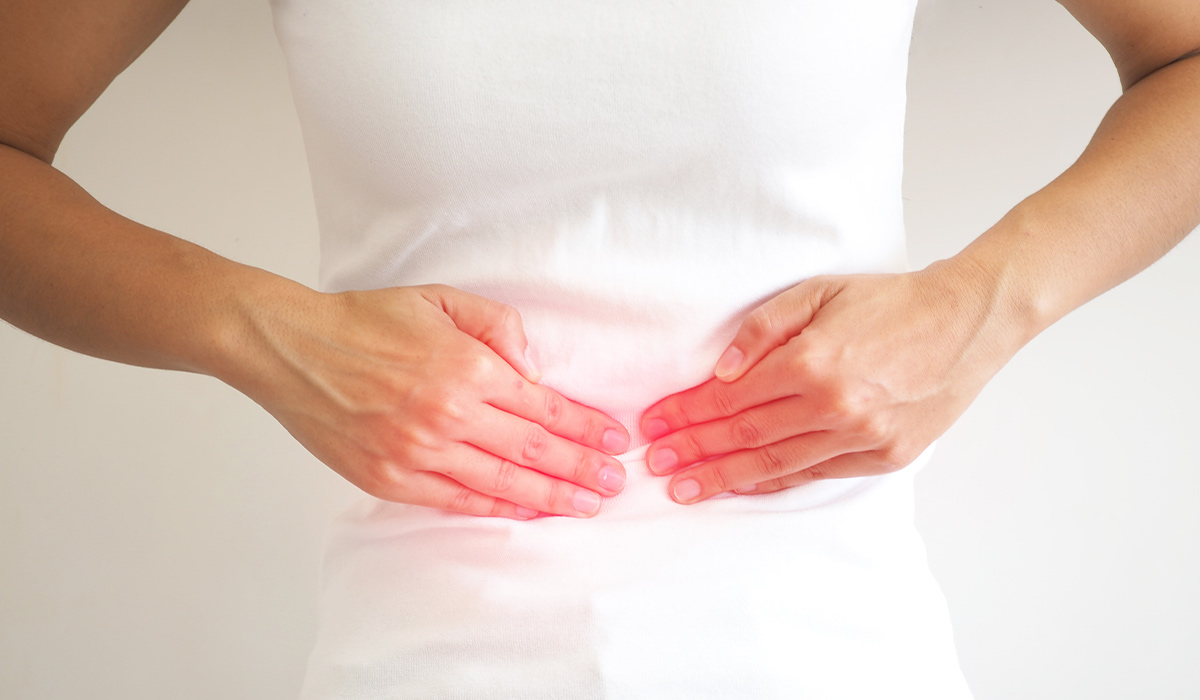
Stomach ulcer symptoms are easily recognizable. However, sometimes the disease is asymptomatic. See how to recognize stomach ulcer disease and… read more »
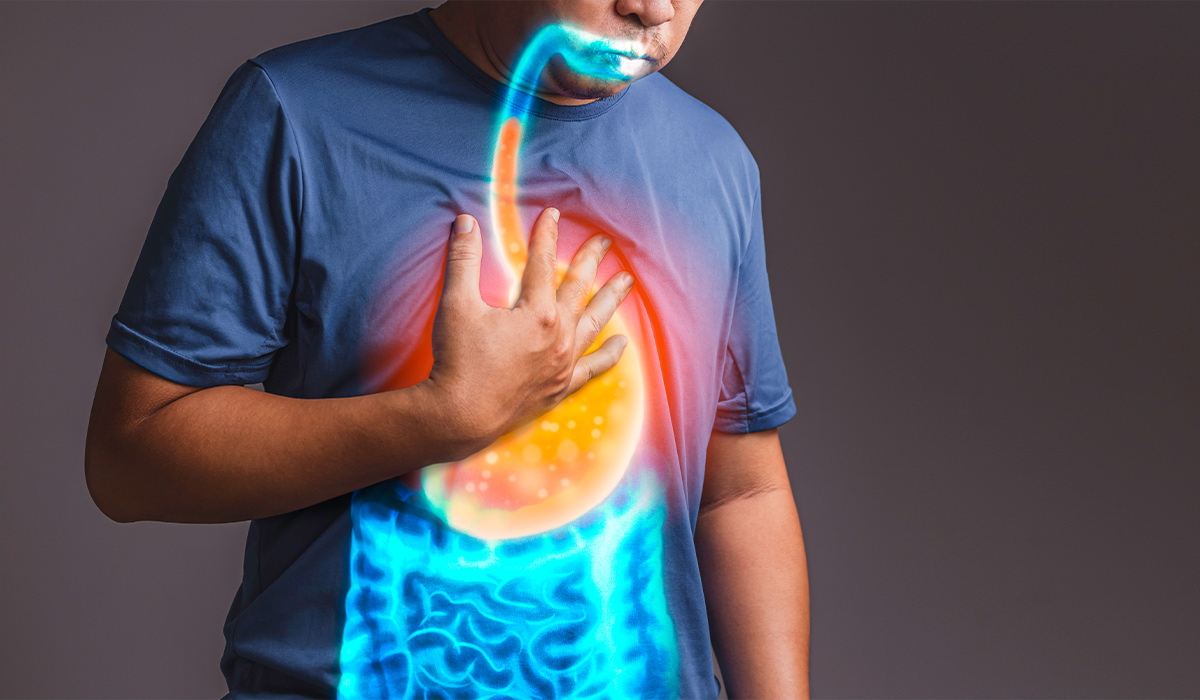
GERD is a condition in which stomach contents flow back into the esophagus. If you feel heartburn and a burning… read more »
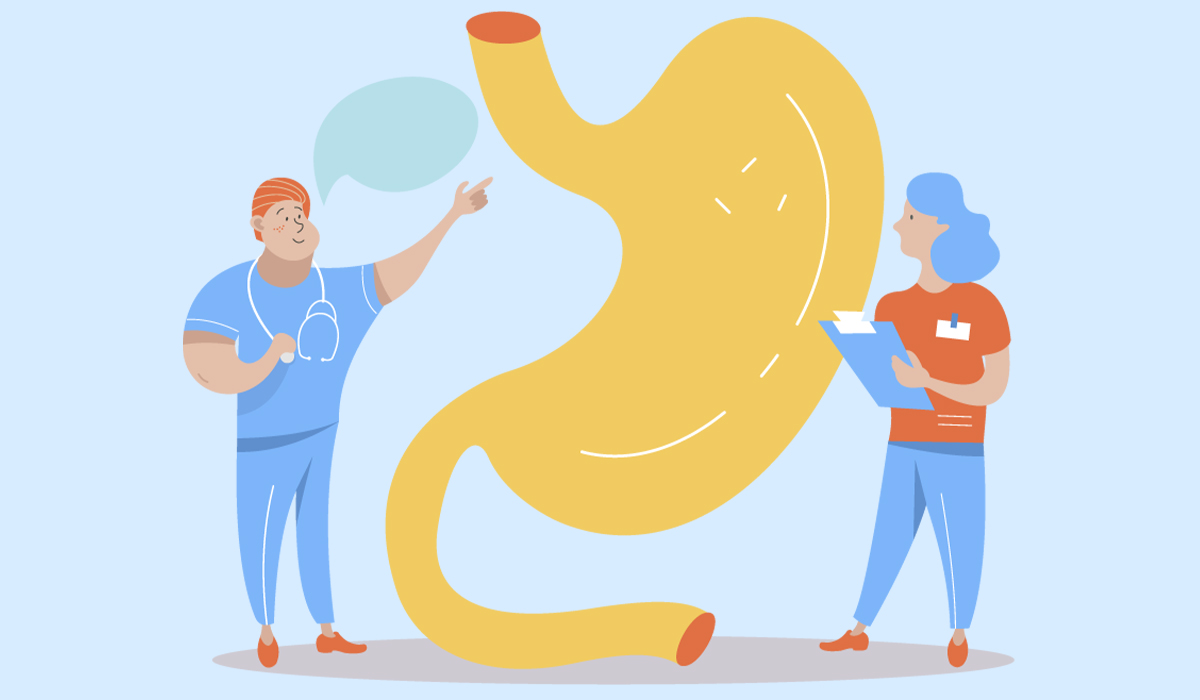
A gastroenterologist deals with the diagnosis and treatment of diseases of the human digestive system. What does a visit to… read more »
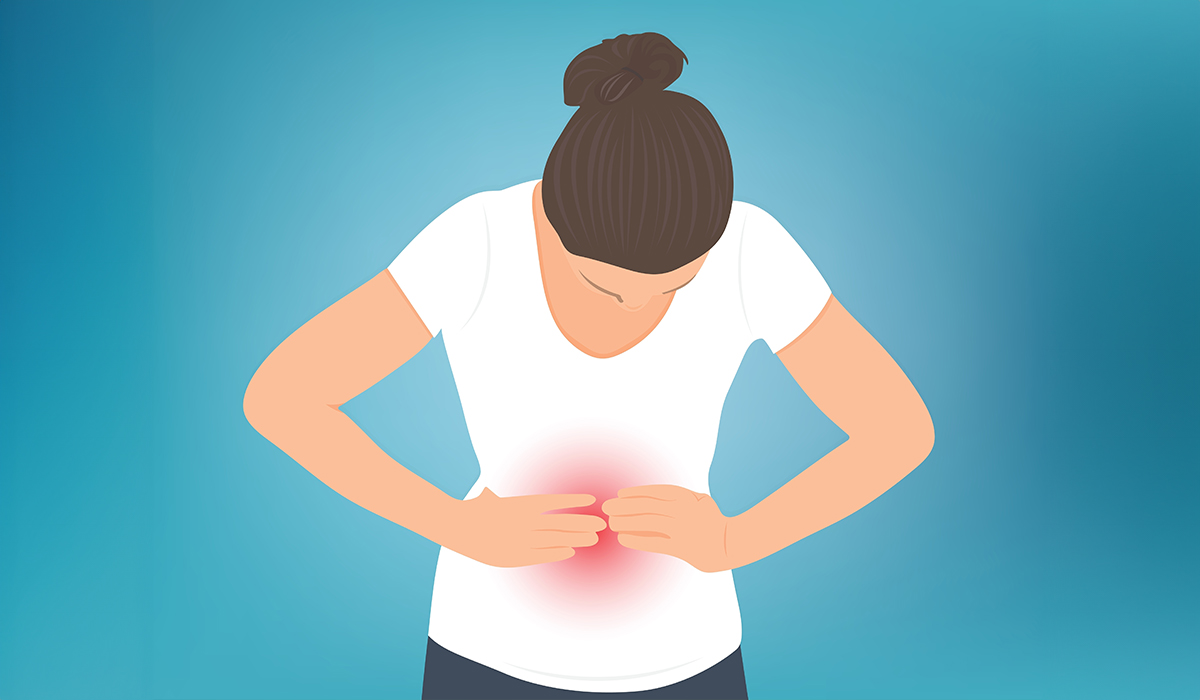
Abdominal pain refers to discomfort or pain felt anywhere in the area between the chest and the pelvis, commonly known… read more »
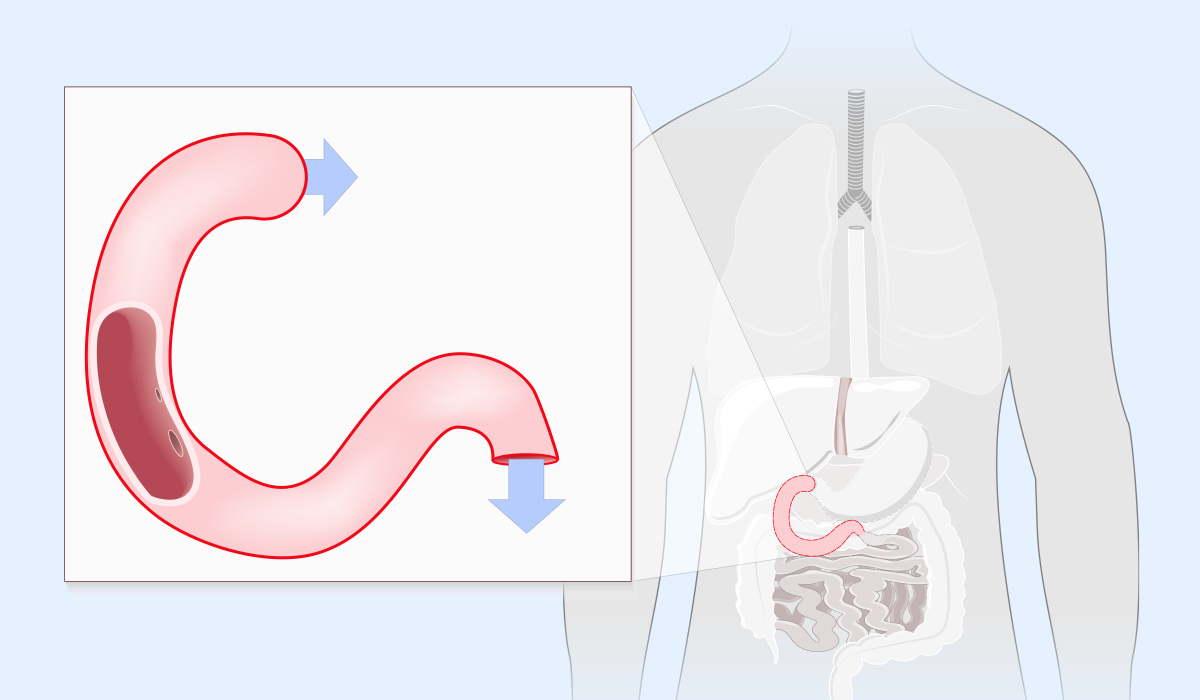
The duodenum is an important organ with useful functions. Find out how to recognize duodenal problems that herald disease. Learn… read more »
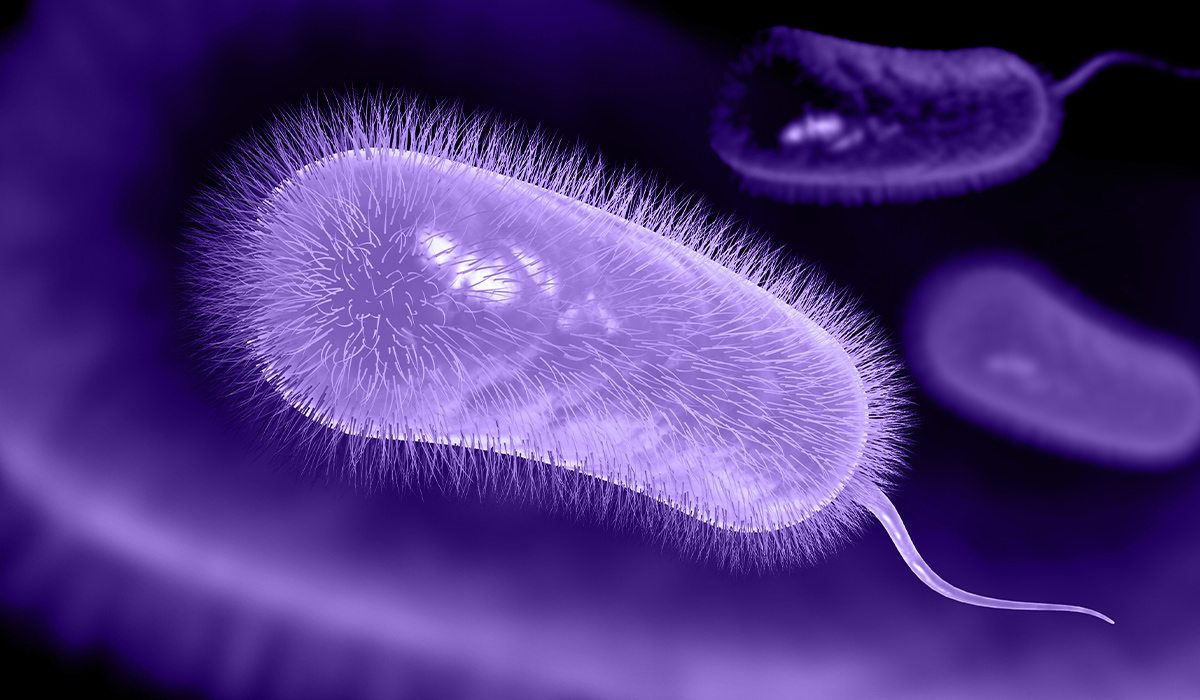
H. pylori is a pathogenic bacterium. Untreated bacterial inflammation can lead to stomach cancer. Learn about treatment methods for Helicobacter… read more »

Flatulence is the excessive accumulation and release of gases. See what are the causes of this condition. What to do… read more »
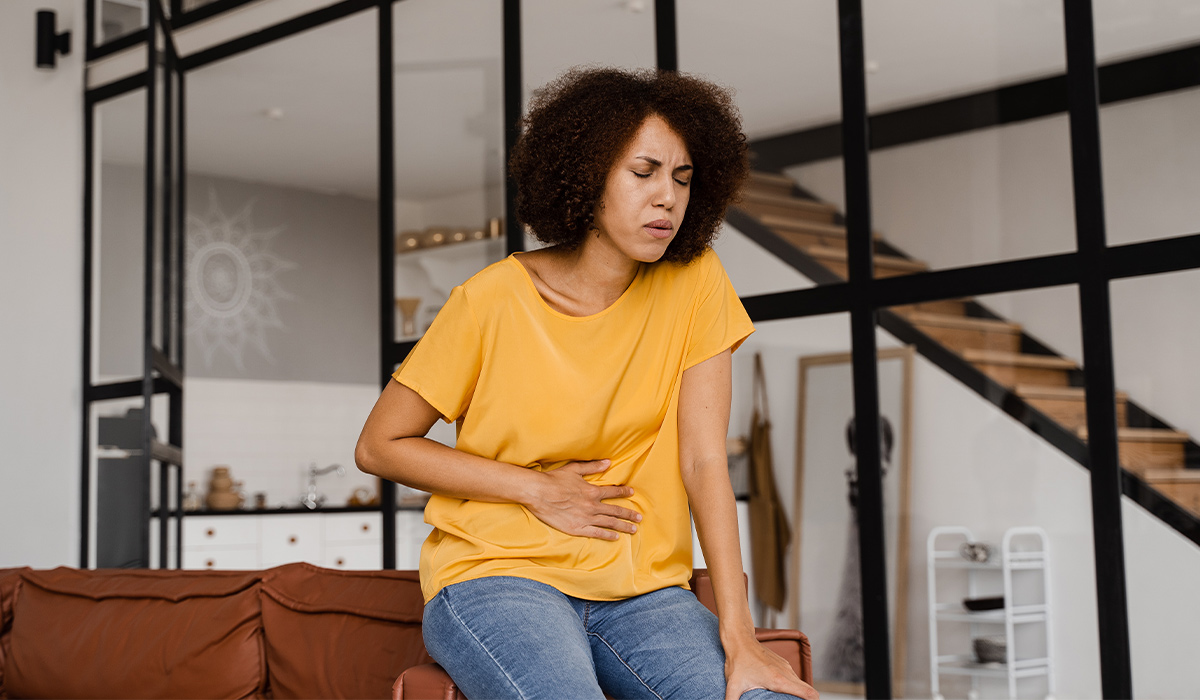
Ileus is a medical condition that stops the passage of food through the digestive tract. What are its symptoms and… read more »